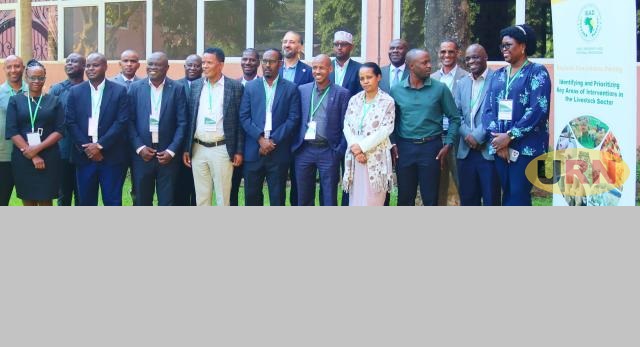
Kampala, Uganda | THE INDEPENDENT | Crop and livestock experts are meeting in Uganda to address emerging threats to food security, particularly in the livestock sector.
The three-day summit that kicked off on Tuesday at the Imperial Golf View Hotel in Entebbe, aims to identify challenges, develop strategies, and adopt policy proposals to enhance food resilience and security in IGAD Member States.
Dr Senait Regassa, the IGAD Food Systems Resilience Program Coordinator, emphasized that the primary goal of the summit is to mitigate food security challenges that undermine livestock food systems.
Dr William Ssendaula, a senior Veterinary Officer in Uganda’s Ministry of Agriculture observed that establishing robust food security frameworks is essential for the region’s socio-economic stability.
Dr Sylvia Henga, a Policy Officer and Food Security Officer for IGAD in Uganda, pointed out that food loss and waste reduce the availability of nutritious food, exacerbating food insecurity and malnutrition. Additionally, the economic losses associated with food wastage are substantial, impacting farmers, businesses, and consumers.
In June 2022, the World Bank allocated USD 375 million (approximately 1,390 trillion Shillings) for a seven-year Food Systems Resilience program in Eastern and Southern Africa. This initiative aims to rebuild resilient agricultural production capacity, support the sustainable development of natural resources, and assist in regional policy-making, among other objectives.
Founded in 1986, IGAD is an eight-country economic bloc of the African Union, focused on promoting regional cooperation and integration. The member states—Ethiopia, Djibouti, Somalia, Kenya, Uganda, South Sudan, Sudan, and Eritrea—have a combined population of over 230 million people.
IGAD’s mission is to add value to the member states’ efforts in achieving peace, security, and prosperity through regional collaboration.
****
URN
 The Independent Uganda: You get the Truth we Pay the Price
The Independent Uganda: You get the Truth we Pay the Price





